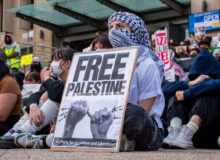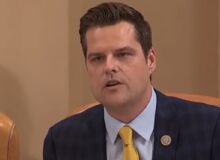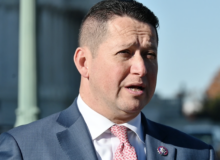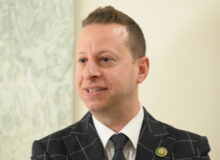America’s Exceptionalism: Principled Results
In this chapter we will continue to look at specific subjects that were the foundational beliefs of the Founders. These comments are from writings of the Founders about the particular subject and the importance that they believed it held in our nation.
This next subject that we are going to look at is Christianity. For the last 40-50 years we have been told that the Founders were not Christians. These following quotes only scratch the surface of quotes by the Founders on their deep Christian faith.
John Adams: The Christian Religion was intended to give Peace of Mind to its Disciples in all cases whatsoever: but not to send civil or political Peace upon the earth but a sword, and a sword it has sent: and Peace of Mind too to millions, by conquering death and taking away his sting.1
John Dickinson: Christianity is an active, affectionate and social religion, chiefly consisting in a discharge of duties to our fellow creatures. It therefore requires no separation from them. The enjoining that we “be not conformed to the world”, in following this direction, the utmost attention is necessary lest distinctions from others by plainness of manners and customs assume the place of virtues, and become snares. Such distinctions are not in the least value in themselves because they are no part of Divine Laws.2
Benjamin Franklin: History will afford frequent Opportunities of showing . . . the Excellency of the Christian Religion above all others ancient or modern.3
Patrick Henry: Amongst other strange things said to me, I hear it is said by the deists that I am one of their number; and, indeed, that some good people think I am no Christian. This thought give me much more pain than the appellation of tory; because I think religion of infinitely higher importance than politics; and I find much cause to reproach myself, that I have lived so long, and have given no decided and public proofs of my being a Christian. But, indeed, my dear child, this is a character which I prize far above all this world has or can boast.4
John Jay: I have long been of opinion that the Evidence of the Truth of Christianity requires only to be carefully examined to produce conviction in candid minds.5
Thomas Jefferson: I am a real Christian, that is to say, a disciple of the doctrines of Jesus, very different from the Platonists, who call me infidel, and themselves Christians and preachers of the gospel, while they draw all their characteristic dogmas from what it’s Author never said or saw. They have compounded from the heathen mysteries a system beyond comprehension of man, of which the great reformer of the vicious ethics and deism of the Jews, were he to return to earth, would not recognize one feature.6
Our savior did not come into this world to save metaphysicians only. His doctrines are leveled to the simplest understandings and it is only by banishing Hierophantic mysteries and Scholastic subtleties, which they have nick-named Christianity, and getting back to the plain and unsophisticated precepts of Christ, that we become real Christians.7
Had the doctrines of Jesus been preached always as purely as they came from His lips, the whole civilized world would have now been Christian.8
I am looking with anxiety to see the dawn of primitive Christianity here, where, if it once appears, it will soon beam like the rising sun and restore reason to her day! “Thy kingdom come” is therefore my prayer; and my confidence is that it will come.9
James Madison: The best and purist religion, the Christian Religion itself.10
Benjamin Rush: Christianity is the only true and perfect religion and that in proportion as mankind adopts its principles, and obeys its precepts, they will be wise and happy.11
John Jay: Providence has given to our people the choice of their rulers and it is the duty as well as the privilege and interest of our Christian nation to select and prefer Christians for their rulers.12
Whether our religion permits Christians to vote for infidel rulers is a question which merits more consideration that it seems yet to have generally received, either from the clergy or laity, It appears to me, that what the prophet said to Jehosaphat about his attachment to Ahab affords a salutary lesson.13
Concerning Church and State
Thomas Jefferson: That the impious presumption of legislators and rulers, civil as well as
Ecclesiastical, who, being themselves but fallible and uninspired men, have assumed dominion
over the faith of others, setting up their own opinions and modes of thinking as the only true
and infallible, and as such endeavoring to impose them on others, hath established and
maintained false religions over the greatest part of the world and through time: That to
compel a man to furnish contributions of money for the propagation of opinions which he
disbelieves and abhors, is sinful and tyrannical . . . that the opinions of men are not the object
of civil government, nor under its jurisdiction; that to suffer the civil magistrate to intrude
his powers into the field of opinion and to restrain the profession o r propagation of principles
on the supposition of their ill tendency is a dangerous fallacy, which at once destroys all
religious liberty . . . That it is time enough for the rightful purposes of civil government for its
officers to interfere when principles break out into overt acts against peace and good
order.14
In matters of religion, I have considered that its free exercise is placed by the Constitution
independent of the powers of the general government (Federal government). I have therefore
undertaken, on no occasion, to prescribe the religious exercises suited to it; but have left
them, as the Constitution found them, under the direction and discipline of state or
church authorities acknowledges by the several religious societies.15(emphasis added)
This statement from Jefferson confirms that the Federal government does not have the jurisdiction over religion that it has taken. The control is with the states and the church authorities.
If the Founders believed that there should be a separation of church and state as the Court declared in 1947, Everson v. Board of Education, then we would always see in our history that separation. Today our military chaplains are not allowed to pray in Jesus name. Many prayers have to be cleared by a military board. Let’s see how General George Washington addressed this situation. On July 4, 1775 Washington issued this order:
The General most earnestly requires and expects a due observance of those articles of war established for the government of the Army which forbid profane cursing, swearing and drunkenness. And in like manner he requires and expects of all officers and soldiers not engaged in actual duty, a punctual attendance of Divine services, to implore the blessing of heaven upon the means used for our safety and defence.16
Washington was one that wanted his orders followed to the letter. He was also one to follow orders to the letter. If, and I accentuate the word ‘if’, there was set in place during his term as General of the Continental Army, a demand as we have today in keeping the influential relationship of religion out of the military, then why was the afore mentioned command from him ever given?
Looking again at Washington we see that when he was informed that the French had joined the war on the side of the colonies he issued this order:
May, 5, 1778, It having pleased the Almighty Ruler of the universe to defend the cause of the United American States, and finally to raise up a powerful friend among the princes of the earth, to establish our liberty and independence upon a lasting foundation, it becomes us to set apart a day for gratefully acknowledging the divine goodness, and celebrating the important event, which we owe to His divine interposition.17
This ‘celebration’ was not spending the day down at the local pub enjoying a few pitchers
of Sam Adams’ Summer Ale. This celebration was spent in church thanking and praising God for His divine intervention into their circumstances. The idea that the Founders demanded that no religious influence be allowed into the government or the military is foolishness at best. As we have seen that our Founders were brought up on the Word of God. Their Bible, for the most part was the Geneva Bible with commentaries on many of the subjects to help understand the meaning of God’s full intent for His children. Virtually all of the founders used scripture to guide their daily lives. All through the Revolutionary War the Governors of each of the colonies would call for prayer and fasting. Today that would draw thousands of lawsuits from the ACLU and their ilk as we are seeing with the prayer service that Governor Rick Perry has called for the State of Teaxs. But our Founders didn’t think twice about it. Does this mean that they ignored the ‘establishment clause’? No. It means that the Founders never wanted the influence of Christianity on government and the people to be stifled.
The Founders believed that God intervened on their behalf many times. They were before Him in prayer always. They knew that He answered their prayers. They took seriously
Philippians 4:6 “Be careful for nothing; but in everything by prayer and supplication with thanksgiving let your requests be made known unto God.”
Many times the hand of God was on the American troops. In one instance in August of 1776 British General Howe had trapped Washington and 8,000 of his troops Long Island. Desperate to remove his men, during the night Washington began to ferry his men across the East Rover. When dawn came he still had a large number of men on Long Island exposed to the British troops. In a most unusual change in the weather caused a very thick fog to rise and it did not lift until Washington’s troops had made their retreat.
In another instance in February of 1781 Lord Cornwallis nearly overtook the American army at the Yadkin River. As he watched the American troops getting out of the river on the other side the river unexpectedly rose almost to flood stage preventing him from giving chase. Later that same month the American troops were being pursued by the British and had crossed the Dan River a few hours ahead of the British but when the British arrived the river had risen to the point where they could not pursue the American troops for several days. British Commander-in-Chief Henry Clinton explained it this way:
Here the royal army was again stopped by a sudden rise of the waters, which had only just fallen (almost miraculously) to let the enemy over, who could not else have eluded Lord Cornwallis’ grasp, so close was he upon their rear.18
It would be impossible to prove that our Founders did not believe that their Christian faith should be part of everything that they did personal, business and governmental. We will continue to look at the aspect of church and state in the following chapter.
- John Adams to Benjamin Rush, November 29, 1812. Old Family Letters,
- John Dickenson, “Religious Instruction for Youth”, undated. R. Logan Papers, Historical Society of Pennsylvania.
- Benjamin Franklin, “Proposals Relating to the Education of Youth in Pennsylvania”. 1749, Labraee, Papers of Benjamin Franklin, 3:413
- Patrick Henry to Betsy Aylett, August 20, 1796. William Wirt, The Life of Patrick Henry (New York: M’Elrath & Bangs, 1831), 402-403.
- John Jay to Uzal Ogden, February 14, 1796. Jay Papers (online edition), Columbia University.
- Thomas Jefferson to Charles Thomson, January 9, 1816. Adams, Jefferson’s Extracts, 365.
- Thomas Jefferson to Salma Hale, July 26, 1818. Adams, Jefferson’s Extracts, 385.
- Thomas Jefferson to Benjamin Waterhouse, June 26, 1822. Adams, Jefferson’s Extracts, 405.
- Thomas Jefferson to Benjamin Waterhouse, October 15, 1822. Jefferson Papers, Library of Congress.
- James Madison To Jasper Adams, September 1833, Dreisbach, Religion and Politics, 117.
- Benjamin Rush, “A Defense of the Use of the Bible as a School Book”. Rush, Essays: Lirerary, Moral, and Philosophical,
- John Jay to John Murray, Jr., October 12, 1816. Johnston Correspondence of Jay, 4:393.
- John Jay to Jedidiah Morse, January 1, 1813. Johnston Correspondence of Jay, 4:365.
- Thomas Jefferson, “A Bill for Establishing Religious Freedom”, 1777. Boyd, Papers of Thomas Jefferson, 2:545-546.
- Thomas Jefferson, Second Inaugural Address, March 4, 1805.
- George Washington, July 4, 1775, in his General Orders from the Headquarters at Cambridge. Jared Sparks, ed. The Writings of George Washington. 12 Vols. (Boston: American Stationer’s Company, 1837, NY: F. Andrew’s, 1834-1847). Vol. III, p. 491.
- George Washington, May 5, 1778, orders issued from the Headquarters at Valley Forge upon receiving intelligence had joined the war on the side of the colonies. Henry Whiting, Revolutionary Orders of George Washington, selected from MSS. Of John Whiting, (1844), p. 77.
- George Washington, Februaru 13, 1781, in a report from British Commander-in-Chief Henry Clinton, William Hosmer, Remember our Bicentennial, 1781 (Foundation for Christian Sel-Government Newsletter – June 1981), p. 5.
Tags: American History Founding fathers Religious Freedom





















Join the conversation!
We have no tolerance for comments containing violence, racism, vulgarity, profanity, all caps, or discourteous behavior. Thank you for partnering with us to maintain a courteous and useful public environment where we can engage in reasonable discourse.